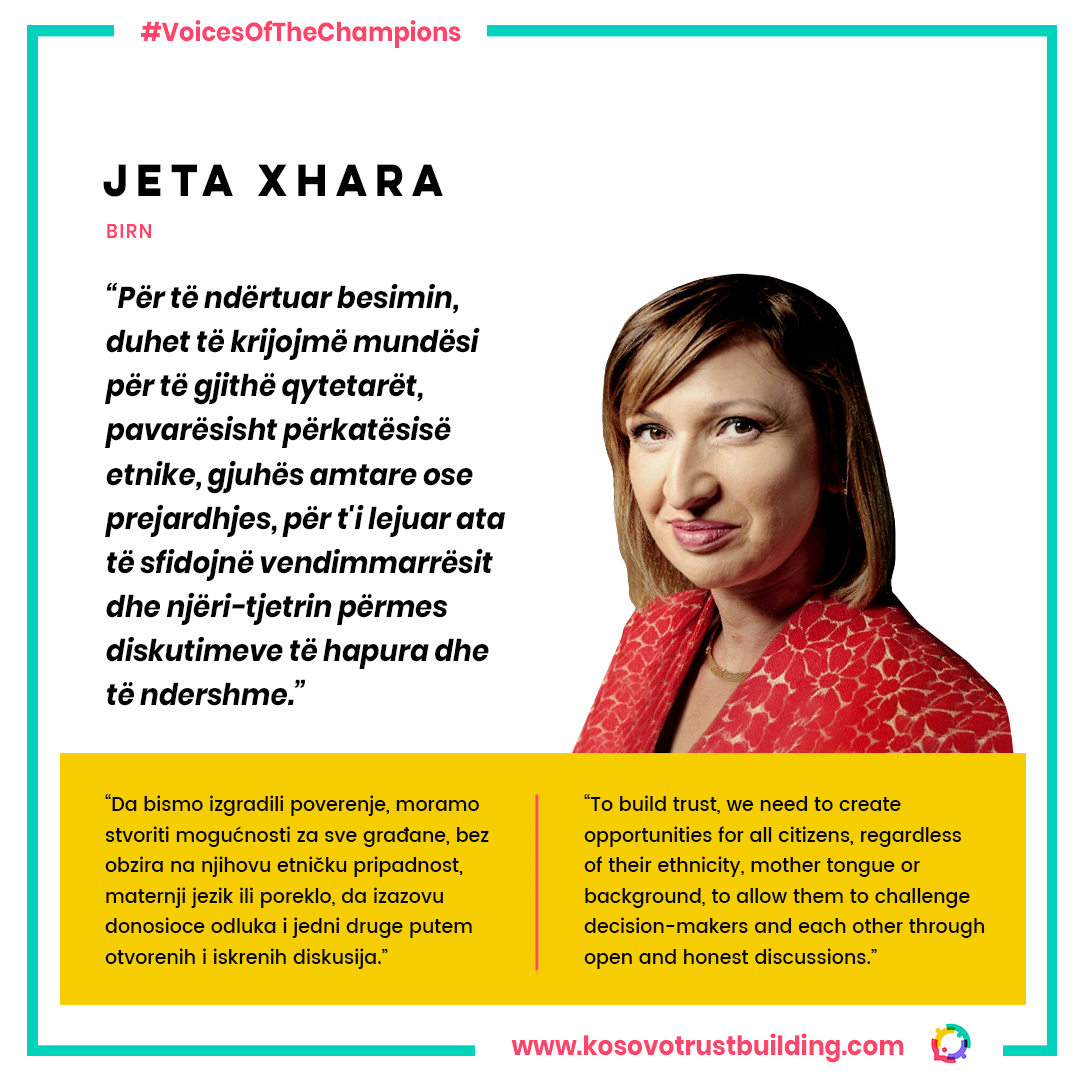Category: Blog Tags:
When it comes to the media in Kosovo, outlets are divided by language; Albanian, Serbian, Romani, Turkish and Bosnian. This means that the same issues cannot be discussed in public by all communities living in Kosovo.
This division has also prevented meaningful debate between communities, and created an environment where debates in Albanian are conducted only by Kosovo Albanian citizens and politicians, while debates in other languages take place on local media in their respective languages.
Segregation of the media, where journalists of one ethnicity are restricted to reporting only on that ethnicity and broadcasters publish only in one language, has created a huge gap in coverage of topics that are important to all Kosovo citizens.
Huge divisions have been created by this lack of inclusive debate. Kosovo Albanian citizens are often unaware of the problems faced by other communities, especially those of Kosovo Serb citizens and vice versa.
The inclusion of all communities living in Kosovo (be it Roma, Ashkali, Egyptian, Turkish, or Bosnian) is also rarely addressed in electoral debates where municipal issues are discussed.
The concerns of ethnic minority citizens are simply ignored, as if they were not living in Kosovo, as language and a lack of access make it impossible for these citizens to question politicians from the ethnic Albanian majority, and hold them accountable for bad governance.
Aiming to break these barriers and enable citizens to both attend and be part of discussions regarding issues that concern them, in 2019 BIRN Kosovo successfully designed and implemented a debate format titled “Kosovo Society Dialogue: Town Hall Debate Series.”
The purpose of these debates was to create opportunities for all citizens, regardless of their ethnicity, mother tongue or background, to allow them to challenge decision-makers and each other through open and honest discussions.
This was enabled by providing citizens with the opportunity to comment and give short interviews, ask questions or even be part of the debates, which were held in open air environments.
In order to reach all Kosovo citizens, the debates were broadcast on Albanian and Serbian language TV channels. Gender balanced and multi-ethnic audiences had the opportunity to participate in all eight live debates and ask questions to the panelists, which also had a gender-balanced and multi-ethnic makeup.
BIRN Kosovo, with UNMIK support organized and broadcast eight debates in different municipalities of Kosovo, wrote and published 24 articles covering issues raised during the debates, produced six vox-pop videos, and invited more than 40 guest panelists, who entered into discussions with each other and over 700 audience members.
A particular achievement of these debates was that, for the first time, a Kosovo TV channel invited to a televised debate an imam and an orthodox monk to discuss issues including religious tolerance and building public trust.
The fact that the two religious leaders were not invited to an external location and hosted by the international community, but instead were debating in a local square with panelists being able to speak in their own languages, sent a strong symbolic message to the public at large.
The huge participation of citizens in the live debates and the online reach of the TV debates showed the overwhelming interest of citizens to follow the debates from different perspectives. At the same time, it seems there was a strong urge for those participating in the debates to exchange their thoughts with one another, even when they disagreed.
The televised debates received hundreds of thousands of viewers on two broadcasters, one in Albanian on RTK and the other in Serbian on TV Mir. Articles documenting the debates were also translated into two languages and distributed to a wide audience. The debates were also broadcast live on Facebook.
By producing and broadcasting eight debates BIRN, with UNMIK support, managed to build and create a good example of open debates, which were followed by all citizens of Kosovo. Such an approach where everyday issues of regular citizens are addressed must continue to take place in BIRN’s programs and also can be used as a model by other TV broadcasts.
Links of articles published on the English newspaper Prishtina Insight
1. A debate on women’s role in decision-making positions-April 4, 2019
https://prishtinainsight.com/a-debate-on-womens-role-in-decision-making-positions/
2. Debaters in Peja demand environmental protection reform-April 12, 2019
https://prishtinainsight.com/debaters-in-peja-demand-environmental-protection-reform/
3. Prizren debates interethnic and religious tolerance-April 18, 2019
https://prishtinainsight.com/prizren-debates-interethnic-and-religious-tolerance/
4. Debaters call for support to young entrepreneurs- April 25, 2019
https://prishtinainsight.com/debaters-call-for-support-to-young-entrepreneurs/
5. Justice officials clash over civil registry issues-May 10, 2019
https://prishtinainsight.com/justice-officials-clash-over-civil-registry-issues/
6. Kosovo youth debate their future in the labor market-May 2, 2019
https://prishtinainsight.com/kosovo-youth-debate-their-future-in-the-labor-market/
7. A dialogue for the past and the future-May 24, 2019
https://prishtinainsight.com/a-dialogue-for-the-past-and-the-future/
8. BIRN debates multi-ethnicity and cohabitation in Kamenica-May 31, 2019
https://prishtinainsight.com/birn-debates-multi-ethnicity-and-cohabitation-in-kamenica/




